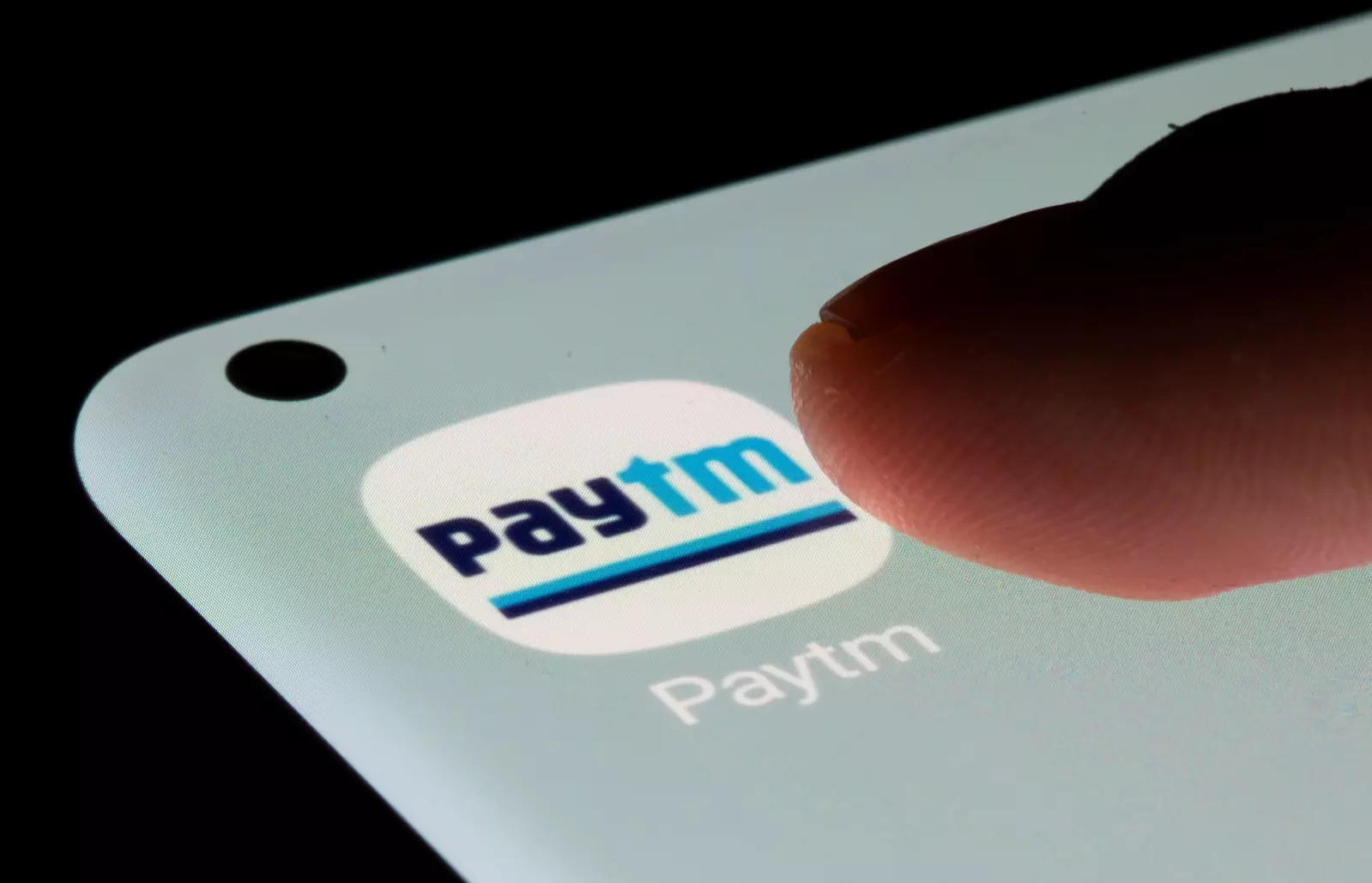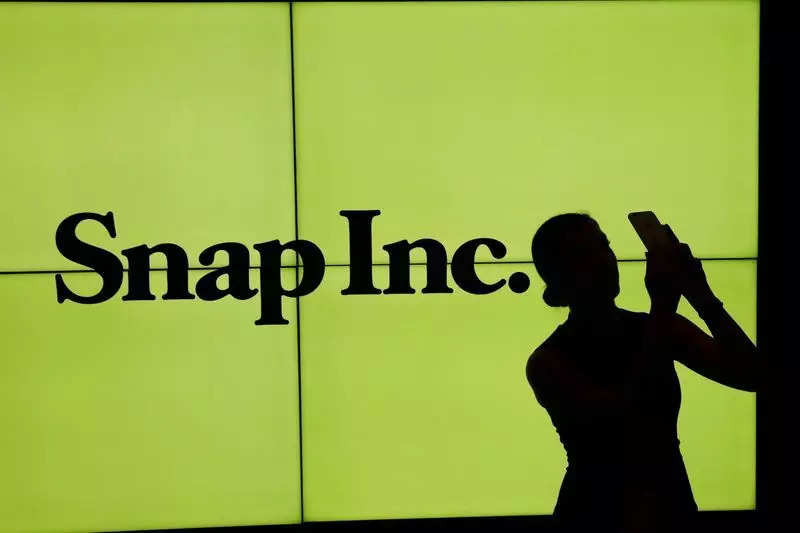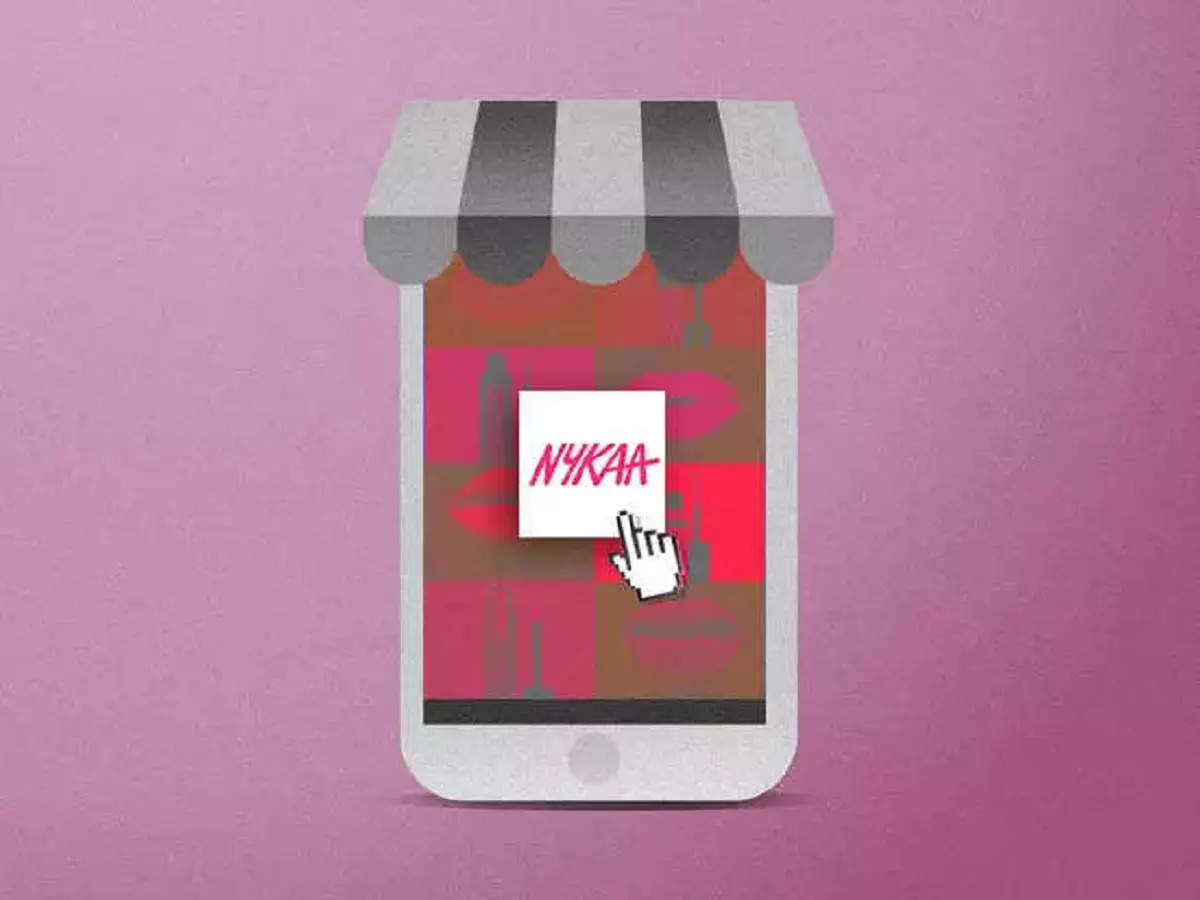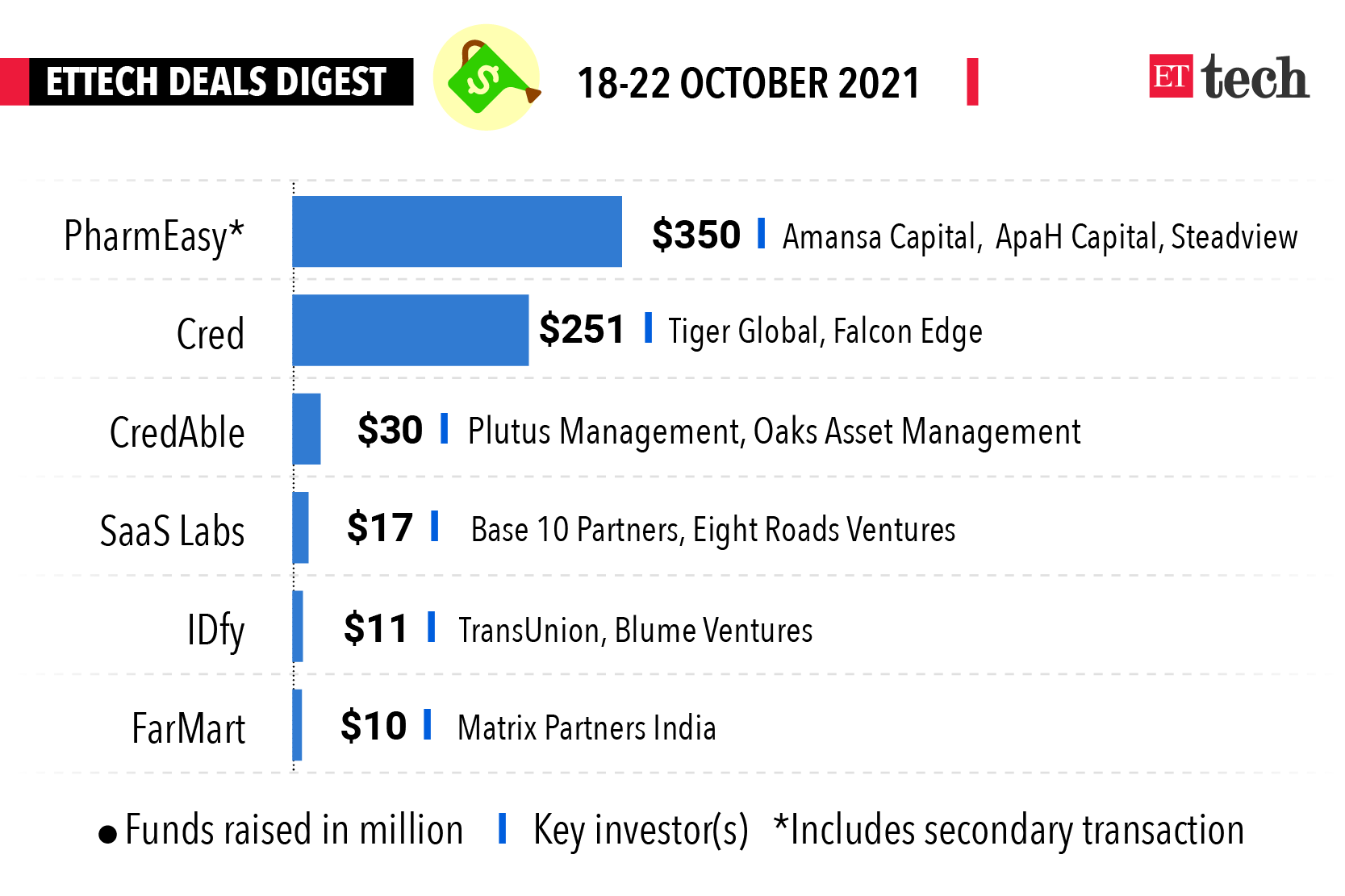Paytm’s mega IPO gets all-clear; Google’s fee cut a ‘distraction’

Credit: Giphy
Also in this letter:
■ Google’s commission cut a distraction tactic: ADIF
■ Snap tumbles 20% as Apple privacy changes hit ads biz
■ Nykaa acquires D2C skincare brand Dot & Key
Sebi approves Paytm’s Rs 16,600-crore IPO

One97 Communications, Paytm’s parent firm, has received the market regulator’s approval for its highly anticipated Rs 16,600-crore ($2.2 billion) initial public offering (IPO), sources told us. An official disclosure from the Securities and Exchange Board of India (Sebi) is expected later today or over the weekend.
Post-Diwali? Paytm is looking to list in early November, sources told us, but it may end up missing its earlier target to launch its IPO before Diwali (November 4). Nonetheless, it should be a publicly-traded company by the second week of November, they said.
The biggie: Paytm is seeking to raise Rs 8,300 crore by issuing new shares and Rs 8,300 crore through an offer for sale (OFS), in which existing investors will sell some or all of their shares.
Valuations differ: Sources said Paytm is aiming for a valuation of around $20-22 billion in its IPO. “Some global investors have shown interest at an even higher valuation but the company has indicated to investors it can settle anywhere between $20-$22 billion,” a person aware of the discussions said.
But other sources indicated that the response to the issue has been muted, giving it a lower valuation. The company was last valued at around $16 billion in a $1 billion funding round around two years ago.
The IPO has nonetheless caught the interest of Canada’s CPPIB, US-based asset manager Alkeon Capital, funds managed by Morgan Stanley and Goldman Sachs, and others, we reported earlier this month. The company’s current investors include Ant Group, Alibaba, Elevation Capital and SoftBank Vision Fund.
IPO momentum: The news comes a day we reported that Nykaa will launch its initial public offering on October 28, having received Sebi’s approval last week. Sources told us the anchor book of up to Rs 2,340 crore would open on Wednesday and that the public issue would close on Monday, November 1.
The company is seeking a valuation of around $7.4 billion for the IPO, another source said, adding that the price band would be decided by next week.
The Rs 5,200-crore IPO includes a primary issuance of up to Rs 630 crore. The rest will be raised through an offer for sale (OFS), in which existing shareholders will sell up to 43.11 million shares, according to Nykaa’s draft IPO red herring prospectus.
Other Indian startups looking to go public in the next few months are PolicyBazaar, Mobikwik and Delhivery.
Google’s commission cut a distraction tactic, says ADIF

The Alliance of Digital India Foundation (ADIF), a grouping of Indian digital startups, said Google’s decision to slash the commission it charges developers of subscription-based apps from next year is merely a distraction tactic. ADIF said its efforts to “protect fair competition and developers’ choices” would continue.
Catch up quick: On Thursday, Google said it will cut the commission it collects from subscription-based apps on Google Play from 30% to 15% from 30% from January 1. The announcement came under mounting pressure from app developers in India, its largest market in terms of users. Their main demand is that Google allows developers to use other payment modes—which don’t charge a hefty commission—for subscriptions and in-app purchases.
In March, Google had reduced its commission on in-app purchases from 30% to 15%, for the first million dollars of revenue earned per year. Apple had made a similar change for its App Store last November.
Quote: “The fact that Google is able to unilaterally declare and dictate prices, as is evident from this announcement as well, lies at the heart of the issue. What developers are asking for is fairness and not benevolence in the form of “reduced” commission percentages. It has never been about the percentages,” said Sijo Kuruvilla George, executive director, ADIF. He added that price discovery should be left to market forces.
ADIF said that while Google’s announcement may be good news for developers who already use Google’s billing system—provided they fall into the “right” categories—it does nothing to address the core issue faced by scores of developers—its monopoly on Play Store payments.
Google’s other changes: Google also announced on Thursday that it would lower its “service fee” for ebooks and on-demand music streaming services to 10%. But popular games won’t benefit from the latest policy change as they generally use in-app purchases, not subscriptions. This means they will have to pay a 15% commission for the first $1 million they earn and 30% for anything beyond that.
Year-long saga: Google has announced several tweaks to its Play Store payments policy over the past year. It had said last year that developers would have to pay a flat 30% commission on all in-app purchases but deferred its implementation to April 2022 following protests by Indian startups. Earlier this month, ADIF had filed a petition before India’s antitrust regulator seeking interim relief from the upcoming changes.
Snap tumbles 20% as Apple privacy changes hit ads biz

Shares of Snap Inc plunged today, dragging down other ad-dependent tech firms, after the photo messaging app owner warned of a prolonged hit from Apple’s privacy changes on iOS devices.
Domino effect: Snap shares were down nearly 20% at $60.8 before the bell, on track to open at a near three-month low. Shares of Facebook, Google parent Alphabet Inc and Twitter were down between 2% and 4%.
The California company, which earns the vast majority of its revenue from selling ads on the app, said the issue was compounded by global supply chain disruptions and labour shortages and caused brands to pull back on their advertising spending.
The issue: The Apple privacy updates were rolled out broadly in June and prevent digital advertisers from tracking iPhone users without their consent. A new ad measurement tool provided by Apple hampered the ability for companies to measure the performance of their ads, upending many of the ways advertisers have been accustomed to doing business for decades, said Snap Chief Executive Evan Spiegel.
- “This has definitely been a frustrating setback for us,” he said.
Oh, Snap! The company added it expects the Apple privacy changes and global supply chain disruptions to linger through the fourth quarter, which is typically the highest-earning period for social media companies when brands ramp up marketing for the holiday season.
By the numbers: Snap’s revenue for the third quarter ended September 30 was $1.07 billion, missing consensus estimates of $1.1 billion, according to IBES data from Refinitiv. Daily active users, a metric watched closely by advertisers and investors, rose 23% year-over-year to 306 million, beating analyst estimates of 301.9 million.
The net loss during the quarter was $72 million, or 5 cents per share, narrowing from $199.9 million, or 14 cents per share, in the year-ago quarter.
Tweet of the day
IPO-bound Nykaa acquires D2C skincare brand Dot & Key

Nykaa, India’s biggest online retailer of cosmetics, has acquired homegrown skincare brand Dot & Key just days before the launch of its initial public offering (IPO) on October 28. The terms of the deal weren’t disclosed.
This is the first acquisition by the Falguni Nayar-led startup in the direct-to-consumer space. The deal, however, is indicative of the wider churn that’s afoot in the sector.
Quote: “We are excited to bring Dot & Key into the Nykaa family in time to serve the demand in high quality skincare by Indian consumers,” Nayar said. “Its product range presents an exciting opportunity for Nykaa as it allows us to extend the brand’s reach to a larger landscape of consumers and enter the nutraceutical space as well.”
Founded by Suyash Saraf and Anisha Saraf, Dot & Key makes skincare products such as serums, face masks, toners and cleansers. The brand recently expanded into nutraceuticals under the brand ‘IKWI’, whose products are dermatologically tested and cruelty-free.
- “We created a niche brand with Dot & Key, focused on making products based on consumer needs. Nykaa’s position in the beauty landscape in India and its resources will allow Dot & Key to grow further as a brand and scale to the next level,” said Suyash Saraf.
ETtech Deals Digest
Here’s a look at the key startup deals and funding rounds that made news in the week to October 22. (Read more)

Indian short-video apps are making a play for Instagram influencers

Indian short-video platforms, which are looking beyond tier-I India for the next set of users, seem to be in a race to buy out Instagram influencers for exclusive content, industry insiders told us.
Talent hunt: Apps such as MX TakaTak, Chingari and Moj — which quickly filled the gap left in the wake of TikTok’s exit from India in June last year — are offering up to Rs 25 lakh per year to influencers with a follower count of 100,000 to 500,000.
“They’re trying to buy out influencers via deals that comprise fixed payouts and performance variables. They are okay (in fact, push) if the influencers post on Instagram, but agreements would bar the creators from posting on other rival Indian social media platforms that are trying to tap Tier-II, Tier-III markets. Instagram is their primary fishing ground,” Praanesh Bhuvaneswar, founder and chief executive of influencer marketing platform Qoruz said.
Instagram’s reach: The photo and video sharing platform is increasing its user base in India faster than Facebook, especially on the back of Instagram Reels, which was launched in India after the TikTok ban. In August and September, Instagram saw approximately 39.5 million installs from across the App Store and Google Play against Facebook’s 30.6 million installs, according to data from Sensor Tower.
The competition: Janhavi Parikh, business head at Times Internet’s MX TakaTak*, said the platform has always stood for nurturing its existing creator community and bringing its users engaging videos by a host of influencers that exclusively continue to supply content to the platform.
“There lies a large and typically untapped audience base in the heartlands of India across Tier-II, Tier-III markets that MX TakaTak caters to, and hence Instagram isn’t necessarily the go-to platform to acquire talent for us as their content is far more urban in nature.”
Chingari, on the other hand, ties up with influencers based on their creative talent, engagement and social media reach, irrespective of the platform they belong to.
“We offer them a spectrum of opportunities, which can boost their potential to create more unique content,” CEO Sumit Ghosh said. “This attracts a wider base of existing and new creators towards Chingari.”
*Disclosure: MX Player is owned by Times Internet Ltd, part of the Times Group that publishes The Economic Times.
Today’s ETtech Top 5 newsletter was curated by Arun Padmanabhan in New Delhi and Zaheer Merchant in Mumbai. Graphics and illustrations by Rahul Awasthi.
For all the latest Technology News Click Here

